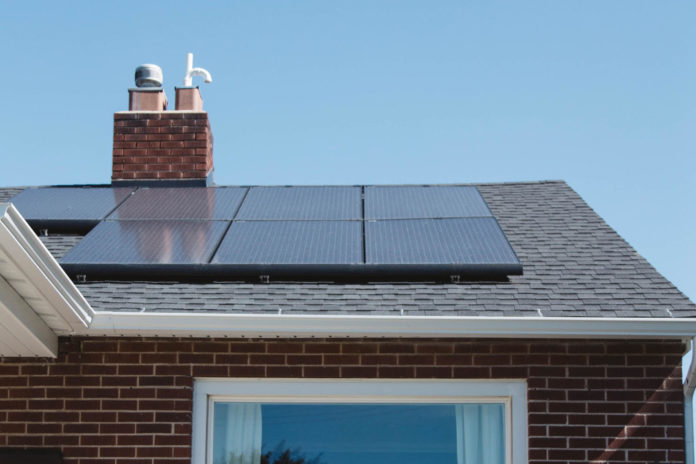
With the increase in global temperatures and the implications for the environment, it is no wonder that many homes in Ireland have resorted to using alternative energy sources to run their activities.
The harm that releasing dangerous pollutants into the atmosphere does to the planet has been controversial for many years. To assist clean up the earth and lessen future pollution, several strategies for environmental protection were put in place, mainly through societal consciousness or through legal means. These suggestions include anything from recycling, cleaning rubbish, and turning to alternative energy. The use of alternative energy is becoming mainstream in Ireland homes.
Energy is currently a major topic due to rapid change. The major energy-related trend is the shift from carbon-based (fossil fuels) to renewable power sources. This transition is especially intriguing because of the unique convergence of cultural, environmental, and market factors.
The issues with using Fossil Fuels
Any use of sources of energy other than the ecologically detrimental and limited supply of conventional fossil fuels is the best definition of alternative energy. Oil, coal, and natural gas are the three types of fossil fuels. Fossil fuels are currently the most common energy source utilised to warm houses and run automobiles. These fuels have to be burnt to be used as energy, and this burning process emits toxic gases into the environment.
Fossil fuels also have a supply issue; it is unknown how long coal and oil reserves will endure at the current rate they are being consumed or whether new supplies will be discovered before existing ones run out. Estimates of the duration of current reserves range from 20 to about 400 years.
The inherent concerns surrounding fossil fuels have pushed Ireland’s individuals to adopt alternative energy sources to keep their homes running. These alternative energy sources have two characteristics; they have little adverse environmental effects and can always be found in sufficient quantities.
Alternative Energy Sources used in Homes
Alternative energy has homeowners all over it because it effectively reduces costs. It might be a bit expensive to set up, but it reduces expenses on energy in the long run because these energy sources are renewable. Also, Ireland’s major energy supplier is a gas pipe that begins in Russia; this pipe’s supply could be cut off at any time. Renewable energy is a method for Ireland to get energy autonomy; for this reason, the government is also on board with this idea.
Some alternative energy sources that can be used in homes are:
Solar Energy
Simply put, solar power is the use of solar panels. It is the most popular alternative energy source. It can be harnessed by: utilising photovoltaic cells to turn sunlight into electricity, using solar thermal panels to heat water and air, or passive solar heating by allowing sunlight to enter a structure through the windows.
The energy we acquire from the sun annually is almost 35,000 times greater than what the human population consumes, making it one of the most promising energy sources. The difficulty is in efficiently capturing and conserving this energy.
Solar PV panels installed on your roof allow you to harness the sun’s power to power your home. These solar panels transform the sun’s energy into electricity that may be used to heat your house and run your electronics. These solar panels can come in form of solar hot water panels or regular solar electricity panels.
The panels can produce electricity during the day and are not dependent on sunshine to function; however, they do produce more on days with higher sunshine. Batteries may be used to store electricity produced during the day so that you can continue to utilise it when the sun sets.
Biofuels
Biodiesel, biomass, methanol, and ethanol are only a handful of the energy sources that may be classified as biofuels. The core concept is to employ organic material as a source of energy, often from plants. The term “biomass” describes the use of waste and plants as a source of energy. Methane is a gas produced when waste decomposes (breaks down) and may be caught and burnt to provide energy which can be converted into electricity.
Similar to fossil fuels, vegetation may be burnt directly to provide power. These techniques have advantages in terms of cost and longevity, but they nevertheless negatively influence the environment, somewhat like carbon fuels.
Air Source Heat Pump
An air source or Solar heating pump is a type of renewable alternative energy source that uses heat from the air to heat houses and supply hot water. It functions similarly to a refrigerator, but in the opposite direction, by drawing heat from the air outside and employing it to provide warmth to your house. Heat pumps function in all climates and may heat your home in conditions as low as -15℃.
There are many reasons to opt for this alternative. Compared to conventional oil or gas warming, heat pumps are an environmentally friendly heating solution, which may improve your household’s energy efficiency and lower its carbon footprint.
Hydroelectric Energy
The process of producing electricity using the force of water is known as hydroelectricity. Hydropower has a long history beyond modern times, similar to wind energy. Originally water wheels were used to harness energy from water for milling grain and sailing ships.
Later, they were utilised for water pumping, agricultural irrigation, generating energy for sawmills, and running cotton mills. Today, we create power using water turbines, which work similarly to wind turbines. There are smaller-scale water pumps, and this energy source is more feasible for people close to a water body.











